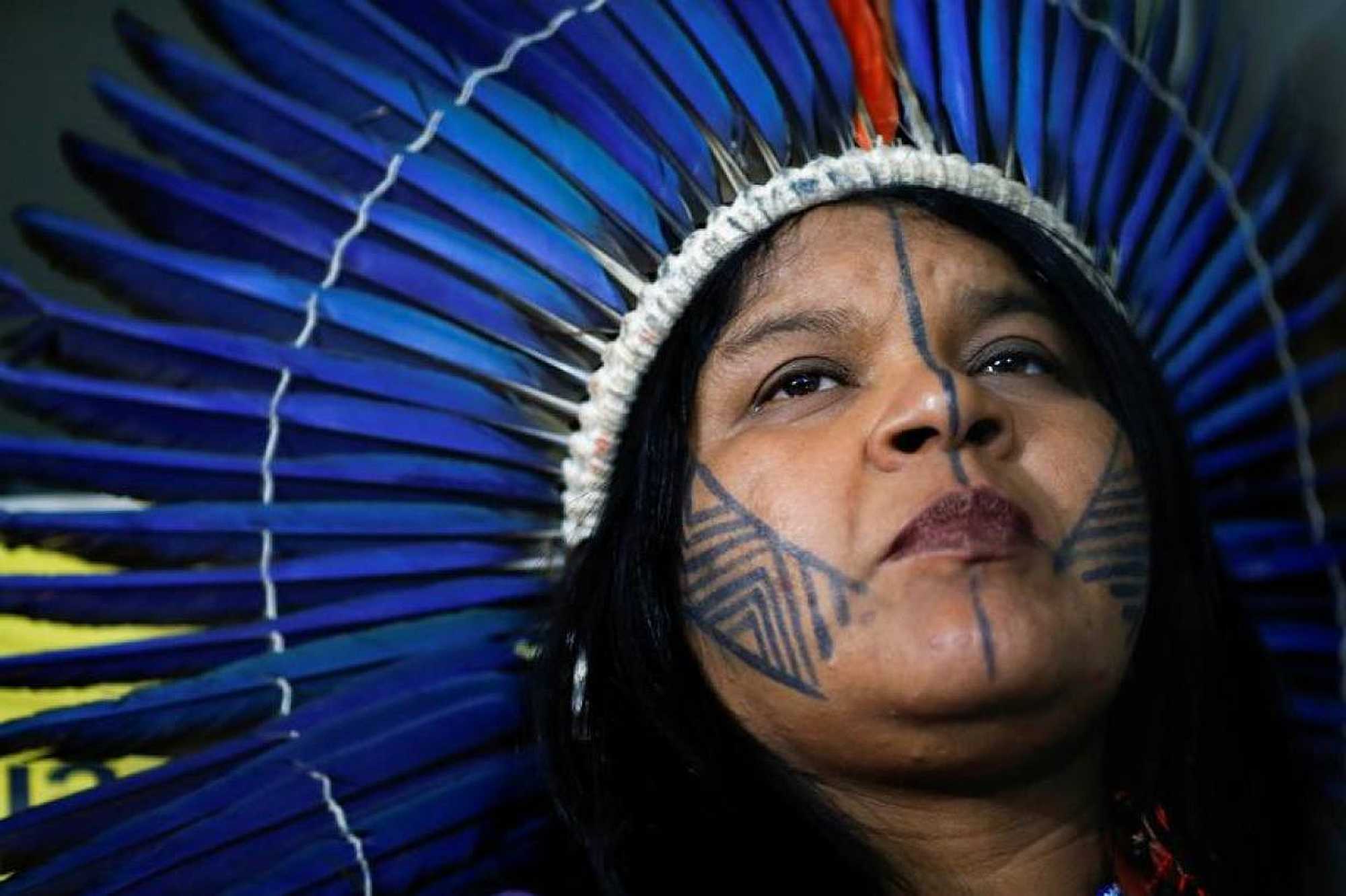Hours after Sonia Guajajara became one of Brazil’s first indigenous women to get a COVID-19 jab, she was the talk of the town – writhing in agony, on death’s door – as the top target of anti-vaxxers peddling fake news on social media.
WhatsApp groups, the main way Brazilian indigenous people hear what is going on outside often-remote villages, were quickly awash with rumors that Guajajara – an important indigenous leader – was dying as a result of a vaccination meant to save lives.
The 46 year-old is one of the few indigenous women in Brazil to gain worldwide fame. In 2017, singer Alicia Keys invited her on stage during a concert in Rio de Janeiro, where Guajajara denounced the deforestation of the Amazon region.
A year later, she ran for vice-president as a member of Brazil’s Socialism and Liberty Party (PSOL), becoming the nation’s first indigenous person to run on the top ticket.
Last week, she became one of the first in her community to get the divisive jab, prompting users of WhatsApp to declare she was either “feeling ill” or already stone dead, said Guajajara.
Guajajara heads APIB, which represents many of the country’s 900,000 native people, and is considered the largest umbrella organization representing Brazil’s indigenous tribes.
In a rush to stop the misinformation, she went on Instagram to say she was fine and that every indigenous person should get vaccinated.
However that post was not enough given the task at hand. Her work to win over skeptical communities scared of vaccines was just beginning.
“We are launching a campaign,” she said. “In the villages there are a lot of people resisting, a lot of people are afraid, saying they won’t take it.”
Some believe the vaccine is part of a bigger plot to kill off indigenous people.
A minority in a nation of 210 million, they have seen ancestral land seized and people killed by farmers who covet their territory. Their mistrust of authorities has only grown since Brazil’s president Jair Bolsonaro came into office, claiming he will open indigenous lands to mining.
Others are influenced by evangelical pastors who credit heavenly healing with more power than science.
“Some say that God is going to save them, that all that’s happening is God’s will. There is a large misinformation campaign, which is reaching even the indigenous people.”
Launched on Friday, the APIB campaign includes videos and images disseminated via the social media accounts of indigenous people being vaccinated across Brazil, which has one of the world’s highest death rates in the pandemic.
In one video, a doctor explains why his fellow indigenous people should get the jab. In another, a local leader debunks a rumor that went viral about an indigenous death post-vaccine.
According to a tally by APIB, about 932 indigenous people have died in Brazil from Covid-19.
This in a country that is second only to the United States in the overall number of COVID-19 victims, with more than 218,000 deaths, according to the Johns Hopkins University.
Vaccination began this month across Brazil, with indigenous people who live in reservations listed as a priority.
The second person vaccinated in Brazil was an indigenous nurse, reflecting the vulnerability of a community with patchy healthcare and more prone to disease due to their isolation.
Guajajara says about 40% of indigenous people live outside reservations officially recognized by the government, and have no priority listing. APIB’s aim is to pressure the government to extend the benefit to those outside reservations.
The pressure, however, could prove useless if indigenous people are too afraid to take the vaccine. This makes the fight against fake news even more important, she said.
“What if we get doses for everyone, but some decide not to take it? The government will say that APIB is fighting for something that the indigenous people themselves reject.”
This article was produced by the Thomson Reuters Foundation. Visit them at https://news.trust.org/

